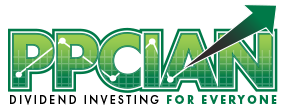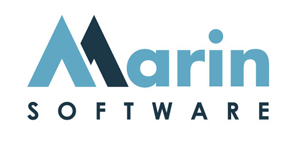While I’m passionate about all the topics I discuss on PPC Ian, today’s is toward the top of the list. It’s at the top of my list because I’m about to reveal one of the most fundamental secrets behind success in corporate PPC. My secret is extremely simple, but also extremely difficult at the same time. Let’s jump right to the punchline: Growing pay per click search engine marketing campaigns is very easy! I’m serious here. There’s absolutely zero magic. If you have a basic understanding of business operations and math, you are totally capable of understanding all the mechanics behind PPC.

Of course, this is only half of the picture. If PPC were so simple, why do some organizations fail while others succeed? Why do some managers make it to the top and others lose the game? Here’s the difficult part: You need to be an absolute master of process, systems, and execution to thrive in pay per click. While the fundamental mechanics of pay per click are reachable, building scalable systems and consistent execution (on the right projects) is extremely challenging.
Recently, I wrote all about conditioning your PPC mind to focus and execute on difficult PPC projects. When I say "difficult" in this article I really mean "difficult to execute". In theory, the mechanics of what you’re trying to accomplish (especially on a small scale) are not that difficult. However, the execution side can be extremely challenging for a number of reasons:
- You’re tired of doing the same thing over and over
- You’re constantly looking for the next big thing
- You find it challenging to stay focused through large PPC projects
- The scale of your keyword set is overwhelming and you’re having trouble building a system to scale
- You and your team become complacent and slow down the pace of execution because numbers are doing really well already
In addition to my tips around search marketing leverage, today I’d like to discuss basic pay per click strategies that are easy mechanically but potentially difficult in execution. I’m going to call out some of the execution challenges behind these projects and how you can overcome those barriers. The goal of today’s article: Let’s grow your pay per click campaigns to the next level by executing on the right projects!
PPC Project 1: Consistently Deploy Keywords
Rewinding to my first day in pay per click, I can remember my checklist vividly. Towards the top of my checklist, my manager had something like this in bold: "Deploy keywords each and every day. Keywords are the fundamental driver of growth." Today, this statement is more truthful than ever. However, it constantly astounds me that very few organizations deploy keywords daily, weekly, or even monthly!
There are a number of things that get in the way. The big ones: categorizing keywords, finding the right adgroups, determining the right bids, and simply doing it! My suggestion: Build a system and then execute on it every single morning, pay yourself (and your campaigns) before doing anything else! Your system may include PPC automation, it may even include hiring an intern or two. The key here is developing the most efficient system possible and then running that system as if your life depended on it, no matter how mundane things may become. (It’s ok if you feel like that guy on LOST pushing the button over and over if the results are powerful.) Remember, numbers going up and to the right are never mundane!
PPC Project 2: Consistently Test Ad Copy
Just like keyword deployment, I’m consistently shocked by the small number of organizations that routinely test ad copy. I’m shocked even more by the small number of organizations that leverage statistical significance in their framework. Just think about it: An improvement in ad copy will not only benefit that campaigns you’re testing on, but will potentially lift all (or many) campaigns across all accounts across all search engines!
My overall advice: Develop a framework (in conjunction with your stats team or someone who’s really great at math) and execute upon it routinely. Never fall into a rut and always remember to retest old copy because trends change over time. As another huge tip (one that applies to ad copy testing but also everything else in today’s article): Never become complacent. I’ve seen it many times: The campaigns are doing extremely well and beating expectations so the team starts to take it easy, focus on non-core activities such as beta tests and meetings, and execution on core projects halts to a grind. PPC is volatile so when the storm hits, the system is broken and the team disappoints. In pay per click, even when things are good, I always like to anticipate the bad days and overcompensate for them in the present. If you always force yourself to execute on core projects (and leverage fear to fuel your execution), it is possible to always hit numbers (even when the storm hits).
PPC Project 3: Add Negative Keywords and Sites Weekly
In my opinion, it’s impossible to make broad match work effectively without the right set of negative keywords. It’s impossible to make Yahoo work without the right set of negative partner sites. It’s impossible to make content match work without the right set of negative sites. The natural solution: Add negative keywords and sites weekly. The challenge: Nobody does it. Just like the other tips, it’s up to you to build a system and execute. A system does not always need to include yourself of your team. Make the case to management that you need to expand your team or outsource certain tasks. I’m a tremendous fan of managing remote India SEM Teams.
PPC Project 4: Update Bids Regularly
I’m leaving my favorite project for last! Everyone updates their high volume keywords regularly. However, when it comes to the mid volume and low volume keywords, bids are regularly updated. Why? There’s never enough statistically significant data when you use the same time offset as with your high volume keywords. The solution: Leverage different time periods to evaluate different keywords. The challenge: You need software to accomplish this effectively. This is where many organizations stop. My challenge to you: Audit the solutions out there, think through the build versus buy decision, and make it happen! Your numbers will be thanking you!
Image of Easy Road © iStockPhoto – Joni_R









